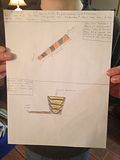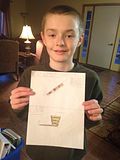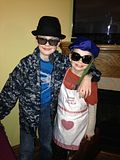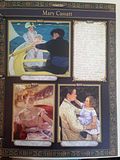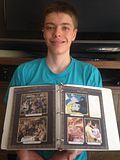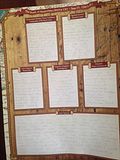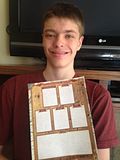Bigger Hearts for His Glory:
It's flu season, and there sure is a lot of it going around, so I especially appreciated our science topic and experiment this week.

It was about the spreading of germs and what can be done to help prevent it. We did an experiment that Emmett loved! He spread glitter all over his hands, and this represented the germs. He then tried to wipe off the germs, and he couldn't get them off. Then, he tried to rub them off in cold water, and some came off, but many still stuck to his hands. Finally, he washed his hands in warm soapy water, and almost all of the germs were washed away. We talked about how if we don't wash our hands with warm soapy water, they just cling to us and are passed to others. By washing with warm soapy water, the germs are washed away down the drain. He is quite attentive to washing his hands now! Something I have been telling him to do virtually since birth.

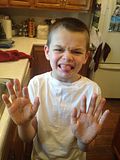
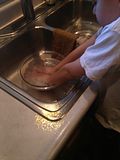
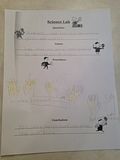
This was a perfect tie-in to our history readings, as we read about Squanto's tribe all dying from a pestilence. Captain Miles Standish's wife and other colonists died from a pestilence too. For Emmett's vocabulary word activity, he chose 'pestilence.' This activity teaches so many important skills! He begins by finding the word in his history book. Then, he uses contextual clues to predict what the definition of the word will be. Next, he tests his prediction by looking up the word in the dictionary (another great skill). Then, he chooses the definition that most closely matches the contextual use of the word in his history book. He copies the definition on an index card (always good to do copywork), draws a picture portraying the meaning of the word, and then uses the word properly in a sentence of his own. Finally, he alphabetizes his card according to alphabetical tabs in his recipe box. WOW! This one activity teaches about every skill tested for on standardized tests for the language arts component!

Right now, I have him doing 1 vocabulary card. One-third of the way into the guide, I'm going to require 2 cards, and for the last third of the guide I'm going to require 3 cards. There are no throw away activities, discussions, or assessments in HOD - all are written for the purpose of teaching important skills. I'm so thankful for that!

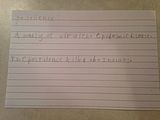
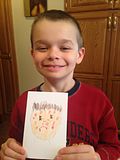
We learned about the four hemispheres this week. Emmett had to put masking tape around the 'equator' of a ball, and label the North Pole and the South Pole. After learning about the Northern and Southern Hemispheres, Emmett had to use the globe to identify which continents were in each of the hemispheres. Then, after putting a piece of tape with an 'x' on the U.S. and turning the globe to face him, he had to identify the Western and Eastern Hemispheres, and use the globe to identify which continents were in each of of those hemispheres. He had to explain how the U.S. could be in both the Northern and the Western Hemispheres. That was a great question and pretty tough for a 7 yo to answer, but after the activity he did, he was able to answer it!

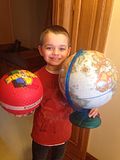
Emmett is learning to draw and color better and better. This is a joy for me to see, as this was not his thing before!

He LOVED the way his science notebooking assignment turned out! He made a "T" column of invertebrates and vertebrates, and labeled and drew pictures for each using his "One Small Square Seashore" as a resource.
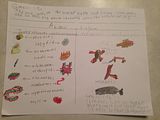
For Emmett's poetry study, we read "Each in His Own Tongue" by William Herbert Carruth. We learned new vocabulary within this poem, such as
haze, tint, infinite, and
goldenrod. I like that was learned these words not by memorization, by quizzing, or by worksheet work - but instead, we learned them by reading timeless poetry, discussing its meaning, choral reading it each day, pointing out its rhymes and rhythms, and then finally by drawing a lovely picture to represent its meaning. This is such a more meaningful way to learn vocabulary, and it is memorable!

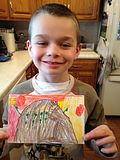
Finally, we did a neat project on 'wants' and 'needs,' which is another common standardized testing topic. Again, I am glad we did this within the context of history. We discussed how the Pilgrims needed food, water, shelter, and clothes, and how Squanto saved the day by teaching them how to plan corn, catch eels, hunt, and fish. What a great way to go about learning and teaching!

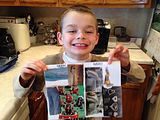
In Christ,
Julie









